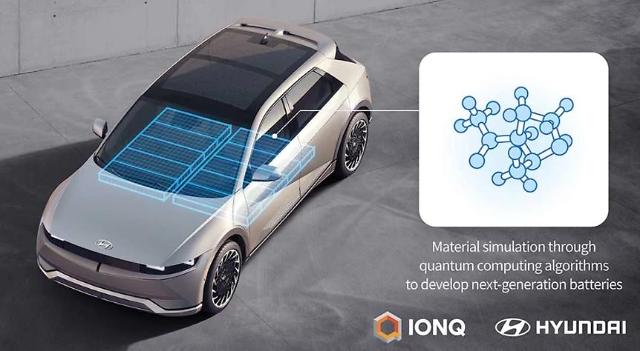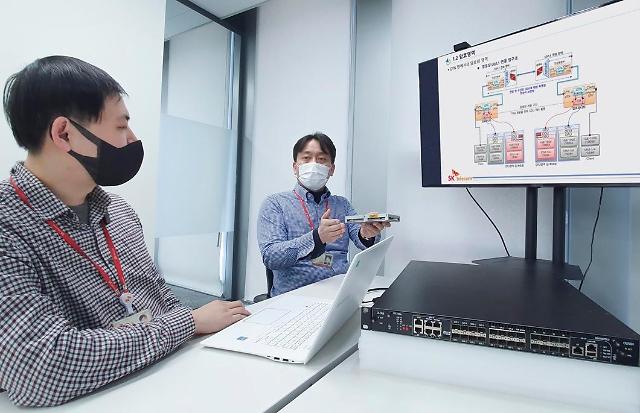
[Courtesy of Hyundai Motor Group]
The auto group said its expertise in lithium-ion batteries would be paired with IonQ’s expertise in quantum computing to create the "most advanced" battery chemistry model yet developed on quantum computers. The partnership would focus on creating better quality batteries by more precisely simulating and controlling their chemical reactions.
Quantum computing uses quantum bits or qubits, based on the principles of quantum theory, which explains the nature and behavior of energy and matter on the quantum level. Quantum computers can be used to simulate chemistry. The quantum simulation of chemistry and materials can predict the rates of chemical reactions, determine molecular structure, and the properties of materials and molecules.
Hyundai said that quantum-powered chemistry simulation is expected to significantly enhance the quality of next-generation lithium batteries by making improvements to charge and discharge cycles, as well as their durability, capacity and safety. Hyundai and IonQ would develop new variational quantum eigensolver (VQE) algorithms to study lithium compounds and their chemical reactions.
VQE uses a hybrid quantum-classical computational approach. It has been proposed as an alternative to fully quantum algorithms because fully quantum algorithms require quantum hardware that will not be accessible in the near future.
The auto group described its partnership with IonQ as a crucial component of its goal to sell 560,000 electric vehicles per year and introduce more than 12 electric vehicle models. "This creative collaboration with IonQ is expected to provide innovation in the development of basic materials in virtual space for various parts of the future mobility," Hyundai's materials research and engineering center head Lim Tae-won said in a statement.
IonQ, based in Maryland, develops a general-purpose trapped ion quantum computer and software to generate, optimize, and execute quantum circuits. The company claims that trapped ions could provide a number of benefits over other physical qubit types in accuracy, scalability, predictability, and coherence time. "Battery efficiency is one of the most promising emerging areas where quantum computing can make a difference," IonQ CEO Peter Chapman was quoted as saying.
Battery makers have tried to produce efficient and high-end batteries that are cheaper and have a larger capacity to lower the entry huddle for new customers. The auto group has vowed to seek the pilot production of electric vehicles installed with solid-state batteries in 2025 through strategic cooperation with battery makers. In October 2021, Hyundai partnered with Factorial Energy, a U.S. solid-state cell technology developer, to develop all-solid-state batteries which are seen as a next-generation power source for electric vehicles.




